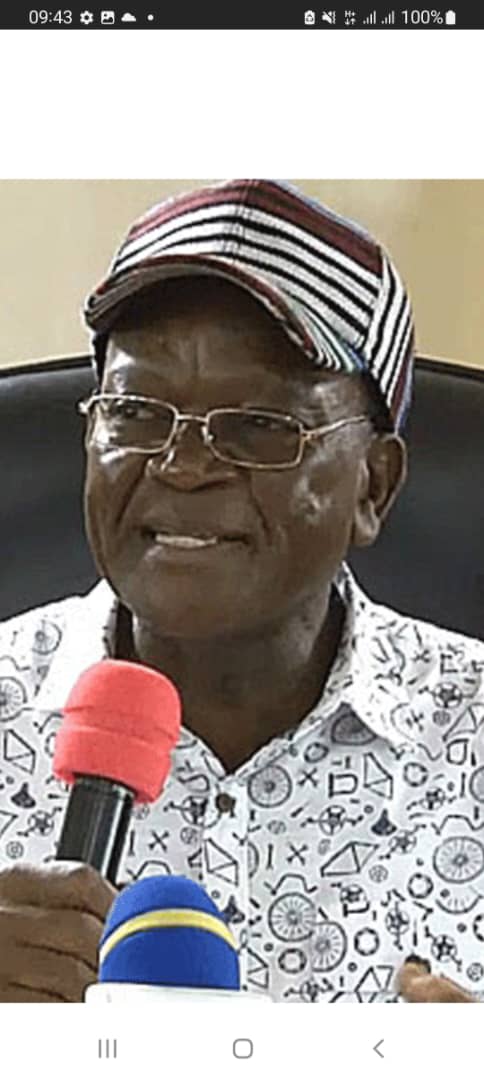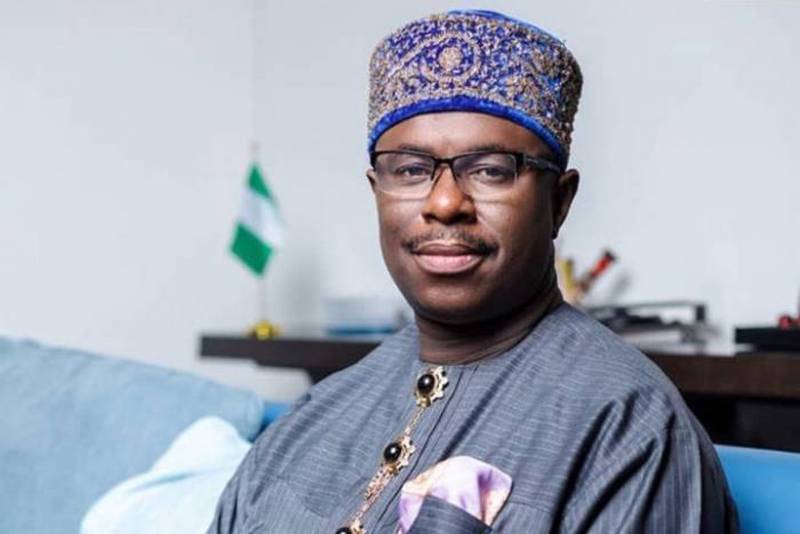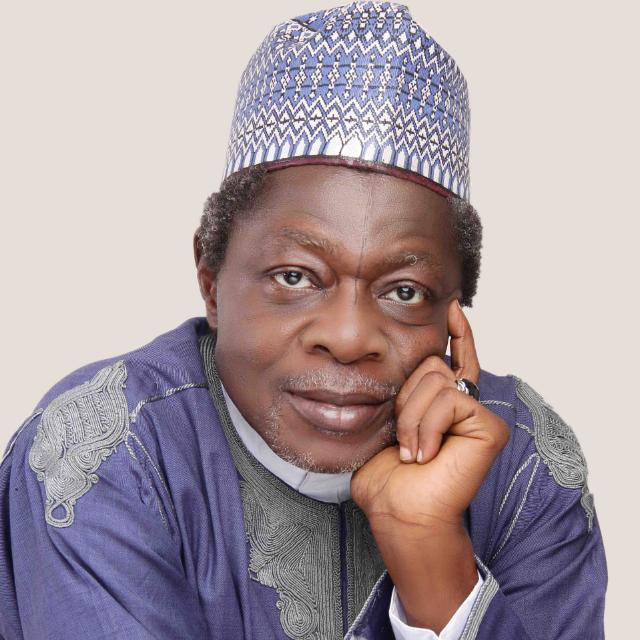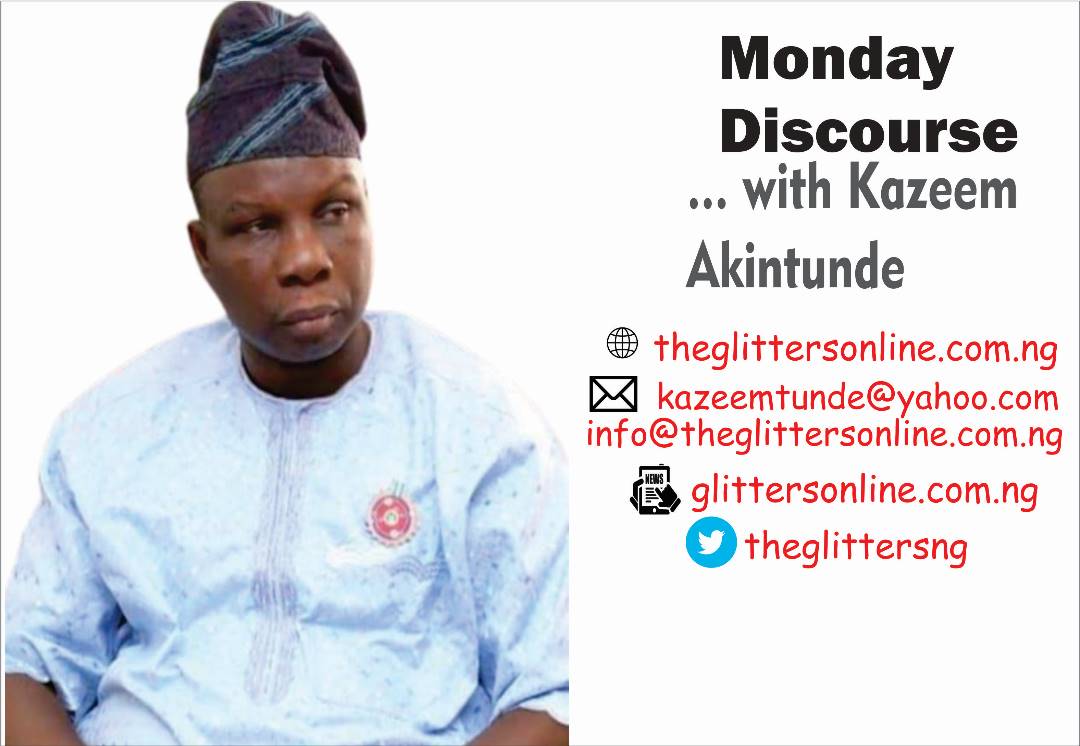Perspectivising Ortom’s travails, attendant lachrymose and palpable angst
By Tunde Olusunle
Samuel Ioraer Ortom, the helmsman of Benue State, is human afterall. He had endured a truly torrid season where his ears had been relentlessly barraged by news and reports of cold-blooded killings of his constituents. He had wept his fill, his eyes periodically reddened by grief. In Mchia and Iorja communities in Mbagber in Logo local government area, (LGA) a combined 15 people were killed in one night, just last month. In Gbeji, Ukum LGA another 37 including two policemen were killed within days of each other. More recently, 16 people were eliminated in Ukohol, Guma LGA in a daytime attack in the community market. Ngban community in the same area council, was next on line 24 hours later, where six were liquidated. Within weeks of one another, rampant herdsmen had murdered over 70 innocent and helpless Benue people, leaving a trail of sorrow, tears and blood, to borrow from the evergreen compositions of the maverick Afrobeat artiste, Fela Anikulapo-Kuti.
The more recent killings followed a similar pattern of calculated and brazen desecration and disruptions in the socioeconomic life of the predominantly agrarian and peace-loving people of Benue State, by infiltrating marauders. The nomads have become a virtual national nuisance who, with their herds of cattle, have entrenched themselves as an integral part of the environmental furniture of even the Federal Capital Territory, (FCT). They orchestrate traffic gridlocks anywhere and anytime of the day, even in Abuja, Nigeria’s showpiece of urban planning and environmental civilization. Motorists have become accustomed to yielding right of way to the horned and humped animals, even as they leave trails of dung on paved streets in city centre. The fear of Fulani cattle it has become, is the beginning of wisdom for commuters in Abuja.
Recent developments in Logo, Ukum and Guma are just the freshest incidents in what has become the regular and routine savagery of pastoralists on aborigines. Other councils across the state have at various times suffered from the unconscionable brutality of the herdsmen. Gwer West, Tarka, Kwande, Katsina-Ala, Okpokwu, Agatu, have also experienced unimaginable communal bereavement and lachrymose, no thanks to the mindlessness, even cold-bloodedness of sundry assailants. Not even Makurdi the state capital which has been a haven of relative calm and sanity has been spared the deadly arms, ammunition and matchetes of the brigands. The dastardly activities of the infiltrators earlier this year, resulted in mortal casualties.
The tally of victims from rampaging herdsmen in Benue State between March and June this year, grazed the century mark. Four years ago, it was Ortom’s painful brief in January and March 2018 respectively, to approve of mass burials for 102 persons mainly youths, mowed by the killer herdsmen, across the state. An estimated 120 security personnel, notably from the police, civil defence corps, even the military, have been felled by the ruthless criminals. Lives lost are in their thousands, with a daily average of three to five casualties. Such has been the grand scale of mass murders foisted on Benue State, in recent years.
The operational template of the killers has virtually been the same in several instances. They besiege their targeted communities on a swarm of motorcycles, each conveying two passengers. While the riders focus on the pathways to their destinations, the passengers bear sophisticated weapons like the AK-47 or AK-49. They steal on their targets in moments when they are most vulnerable, like in their sleep at night or on their farms during the day. They have also chosen market days, when regular folks display their produce for sale, like they did in Ukohol. Life in several Benue communities, has become short, nasty and brutish, to approximate the Hobbesian maxim.
Such regular raids and assaults on unsuspecting communities and country folks, has precipitated the mass relocation of people from their primordial homelands, to makeshift camps for internally displaced persons, (IDPs). They are crammed and squeezed into spontaneously devised, hostel-style accommodation such as classroom blocks, abandoned structures and similar infrastructures. Feeding is communal, oftentimes in open-field dining arrangements. Ortom puts the number of his constituents in IDP camps, as two million. Minimum hygiene, and the propensity of communicable afflictions and epidemics in such mammoth concentrations of bodies into inadequate living spaces, takes the back-burner, when the issue is between life and death. The forgoing trajectory has been Ortom’s lot, into the six final months of his two-term tour-of-duty as governor of Benue State.
It is understandable therefore that a troubled and pained Ortom bared his mind to his visiting colleagues, earlier in the week. Preparatory to the flag-off of campaigns for elections into various political offices ahead of the 2023 general elections, Ortom invited his allies in the G-5. Since the conclusion of the presidential primary of the Peoples’ Democratic Party, (PDP) in May this year, Ortom and his colleagues from Rivers, Abia, Enugu and Oyo, have been at daggers drawn with the leadership of their party. Nyesom Wike of Rivers contested the primary and posted a respectable second place behind former Vice President, Atiku Abubakar. The assumption was that Wike will be compensated with the slot of running mate of the ticket, which, conversely went the way of Ifeanyi Okowa of Delta State.
Hurt by this development, Wike, in concert with Ortom, Ifeanyi Ugwuanyi of Enugu, Okezie Ikpeazu of Abia and Seyi Makinde of Oyo, has been at the fore of a fight with the PDP. Their argument is that the presidential ticket and the chairmanship of the party, cannot both come from the northern section of the party. Atiku from Adamawa and Iyorchia Ayu, chairman of the party from Benue, are geopolitically from the North. Ortom and Company have come to be known as the Group of Five, (G-5) or the Integrity Group, as the case may be. They have never spared any opportunity to come against what they believe is injustice in their own party, whose motto devolves around equity, fairness and justice.
At the state banquet organised in honour of his colleagues, Sunday November 5, 2022 in Government House, Makurdi, Ortom reopened the herdsmen saga which has been a sore point of his stewardship. He expressed his convictions that the harbingers of serial deaths and bereavements to his state, his people, are Fulani herdsmen. And he believes there has been unrestrained infiltration into Nigeria, of foreign Fulani from the West coast and beyond. Ortom is sure they have been emboldened in their deadly and dastardly preoccupations because of the acquiescence of their Nigerian kith and kin. “Fulani neo-colonialists want to appropriate our land as grazing grounds for their cattle,” Ortom has serially maintained. “Fulanis from Chad, Niger Republic, Mali, Burkina Faso, Libya, have breached our borders with the active connivance of their brothers here in Nigeria and want to take over our land.”
Ortom alluded to the enactment of an “Anti-Open Grazing Law” by his administration, to restrain the lawless pastoralists from feasting on the farms of his people who are predominantly farmers. While this has been partly impactful, herders and their acolytes incensed by the temerity of government, have sworn to constitute a recurring nuisance to the peace and stability of the state. According to Ortom: “They have resolved to make life unbearable for my people. I have indeed been pointedly targeted for elimination by these Fulani bandits, for deploying legal instruments to check their lawlessness.” Continuing, Ortom alluded to the solidarity he enjoyed from his colleagues at the height of his travails, particularly Wike. Said Ortom: “Wike spoke out. He warned that if Ortom comes to any harm, Nigeria will be unsettled. Wike, Ikpeazu, Makinde and Ugwuanyi found common grounds in our respect for truth and our insistence on equitation.” Ortom would subsequently allude to Wike’s support to Benue State in its times of tempests and challenges, which in fiscal terms is well over one billion naira.
His anger rising to a crescendo, Ortom came hard on Atiku who he accused of profiling him. According to him: “Atiku made reference to me in Kaduna last month, when he met the Arewa House.” Atiku at the event, alluded to his private chat with Ortom, where he told the Benue governor, that he, (Atiku) is also Fulani, who had reservations about the blanket generalisation of Fulanis. Ortom said the public allusion to a private chat between him and the presidential flagbearer of his party, had exposed him to attack and assault by aggrieved Fulanis. He swore to be in the trenches against the presidential aspiration of Atiku.
Sultan of Sokoto, Mohammed Sa’ad Abubakar III, last year posited that Fulanis have indeed been found culpable in sundry crimes, countrywide. Speaking at a converge with the Miyetti Allah Cattle Breeders Association, (MACBAN), the Sultan admitted that “eight out of 10 kidnappers arrested in Nigeria. But this does not make every Fulani a criminal,” he clarified. Sa’ad Abubakar confirmed that Fulanis from Senegal, Niger Republic, Guinea and Mali routinely violate Nigeria’s poorly policed borders, “conduct their criminal acts and run back.” Governor Aminu Masari of Katsina State seemed to corroborate the Sultan when he appeared in an interview programme with Channels Television September last year. Many bandits and criminals terrorising parts of the country he noted, “are Fulani like me, who speak Fulfude like me and profess the same religion like me.”
Ortom’s thesis about the Fulani holocaust finds further validation in earlier and current warnings and revelations by reputable statesmen and figures like Theophilus Danjuma, an erstwhile Chief of Army Staff, and Minister of Defence, variously. At the convocation of the Taraba State University, Wukari four years ago, Danjuma frontally accused the military of complicity in the creeping insecurity in the country. “They,” (alluding to the security services), collude with assailants of our people.” According to Danjuma: “The armed forces are not neutral. They collude with the armed bandits. They kill people, kill Nigerians. They facilitate their movements, they cover them up. If you depend on the armed forces to stop the killings, you will all die one by one.”
At the October 2022 investiture of the new Aku Uka of Wukari, Manu Ishaku Adda Ali, Danjuma, a highly decorated three-star general in his days, re-echoed his earlier assertion: “The whole country is now being overrun and one very clear thing that is happening now is that these foreign invaders are destroying everything and our government allowed them to come into the country.” Espousing his theory further, Danjuma stated: “They are trying to re-colonise us and take our land. The country with the largest black population is being brought to ruin by absolutely useless criminals.” As ever, Danjuma exhorted Nigerians to dispense with optimism in the security agencies, take up arms and defend themselves.
Last August, Abubakar Kawu Baraje, a former chieftain of the ruling All Progressives Congress, (APC), lent his voice to the origins of the festering national malaise on insecurity. Baraje confirmed that in preparation for the make or break 2015 presidential election, Fulani from neighbouring countries like Sierra Leone, Mali, Senegal, Niger and Chad, were smuggled into Nigeria, specifically for the election. According to him: “The Fulani wreaking havoc in the country are not Nigerian Fulani. They are those procured for the 2015 election, who have refused to return to their home countries.” Baraje tells us other concerned patriots like him, warned against such wholesale importation of non-nationals for electoral purposes. He corroborated Danjuma on the matter of collaboration between the marauders and the security apparachik.
Ortom has refused to fold his arms in despair, in the face of such colossal ruination of his people and their land. Few months back, he established a vanguard, the Community Volunteer Guards, (CVG), a varient of the Amotekun concept popularised in the South West. A first batch of 1500 recruits have been taken through martial drills, including weapon handling. Ortom joined his voice with that of his colleague in Ondo State, Rotimi Akeredolu, seeking federal government approval for the operatives to bear AK-47 weapons. While pursuing this request, Ortom has proceeded to arm the guards with pump action guns. They’ve been deployed across the state and operate side by side with the police.
It will take quite some practised restraint and divine grace for a leader at the centre of the kind of security conundrum Ortom has endured, not to be regularly agitated. His outpouring of anger, vexation and frustration when he spoke at the often quoted recent banquet for his G-5 allies, must therefore be properly perspectivised. On a good day, the regularly Bible-quoting Ortom, a grounded theologian in his own right, is sober, clear-headed, focused and witty. It was the better-known, humorous Ortom, who stood side by side with one of his security aides the other day, and requested a comparison between his, (Ortom’s) footwear and those of the security operative. Ortom’s thesis on that occasion was that his aide was better remunerated by his employers, than he was earning as governor! Such banters which typically elicit giggles and laughters, typify the true Ortom.
The statesmanly Ortom was humble enough to apologise for any hurt his utterances a few days before then would have caused, when he was recently interviewed by newsmen in Bauchi. This is despite his understandable apprehensions about the content of “security briefs,” served him every day. In the course of a midweek visit to Bala Mohammed, governor of Bauchi State in the company of his G-5 quintet, Ortom expressed regrets over whatever irritations and misconceptions his previous extempore speech might have caused. That is the mark of contrition, the insignia of leadership, the type the incumbent APC government has not been able to provide, despite wilfully running the nation aground, from “top to bottom.”
Tunde Olusunle, PhD, poet, journalist, scholar and author, is a Member of the Nigerian Guild of Editors, (NGE).




